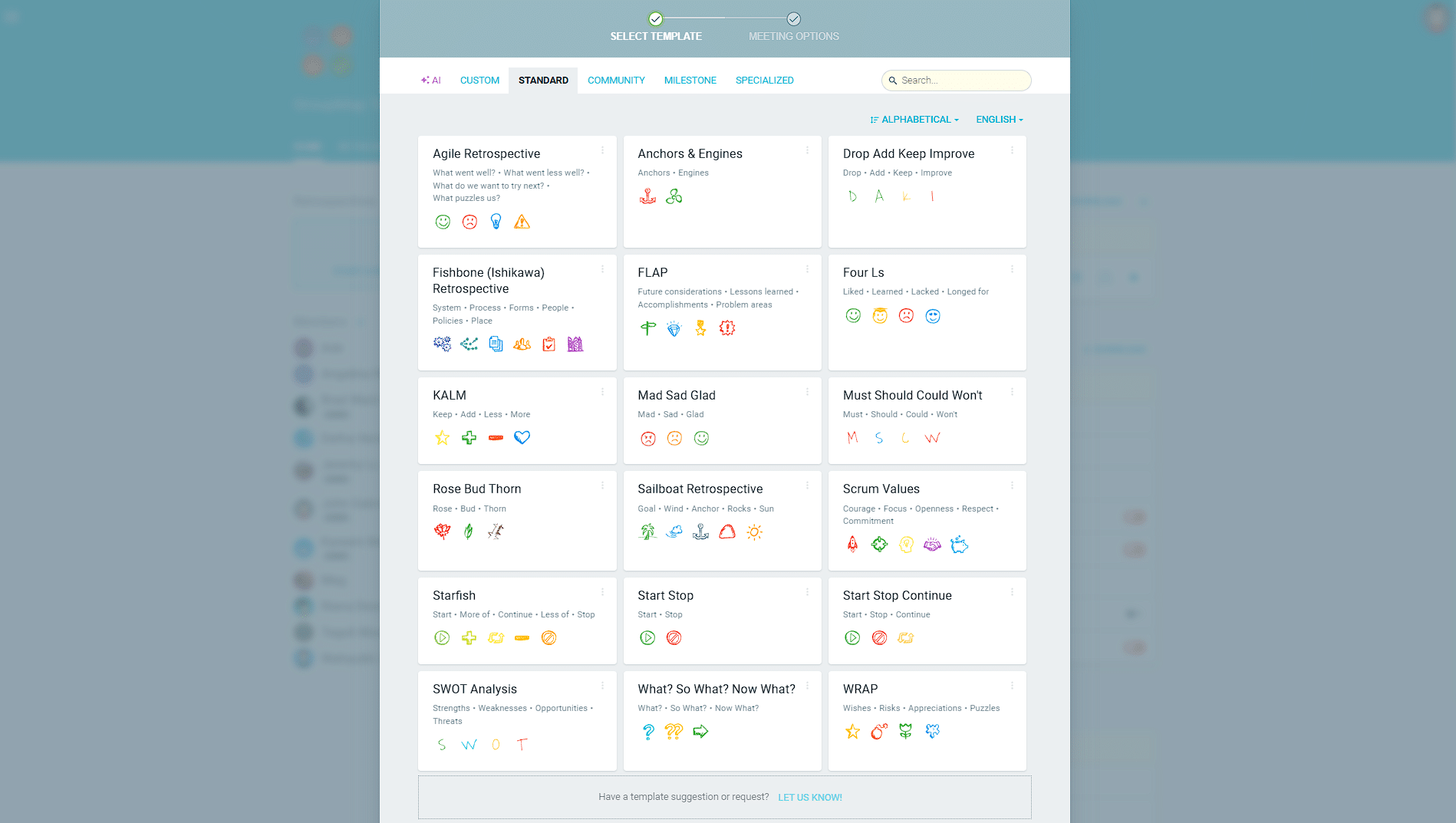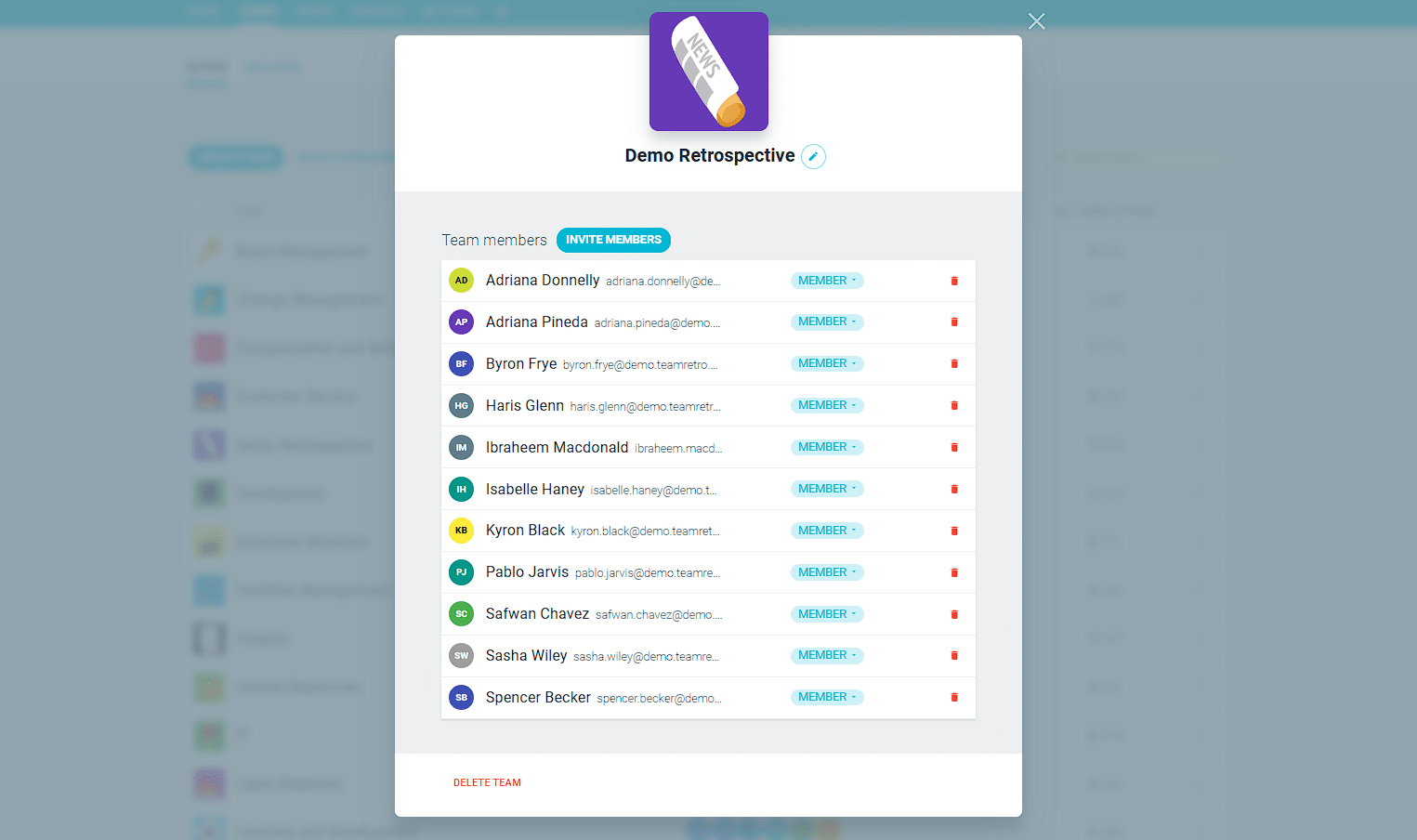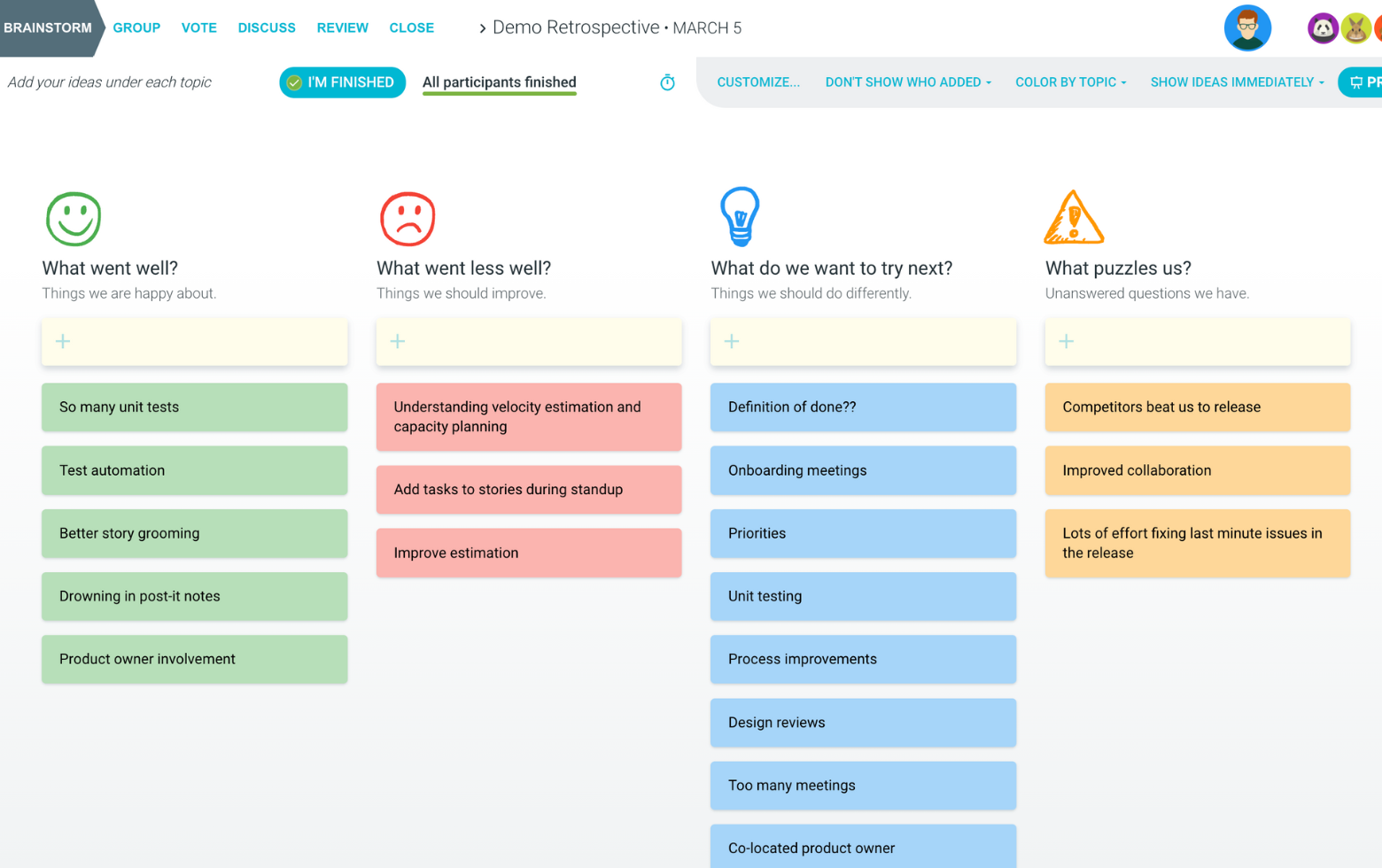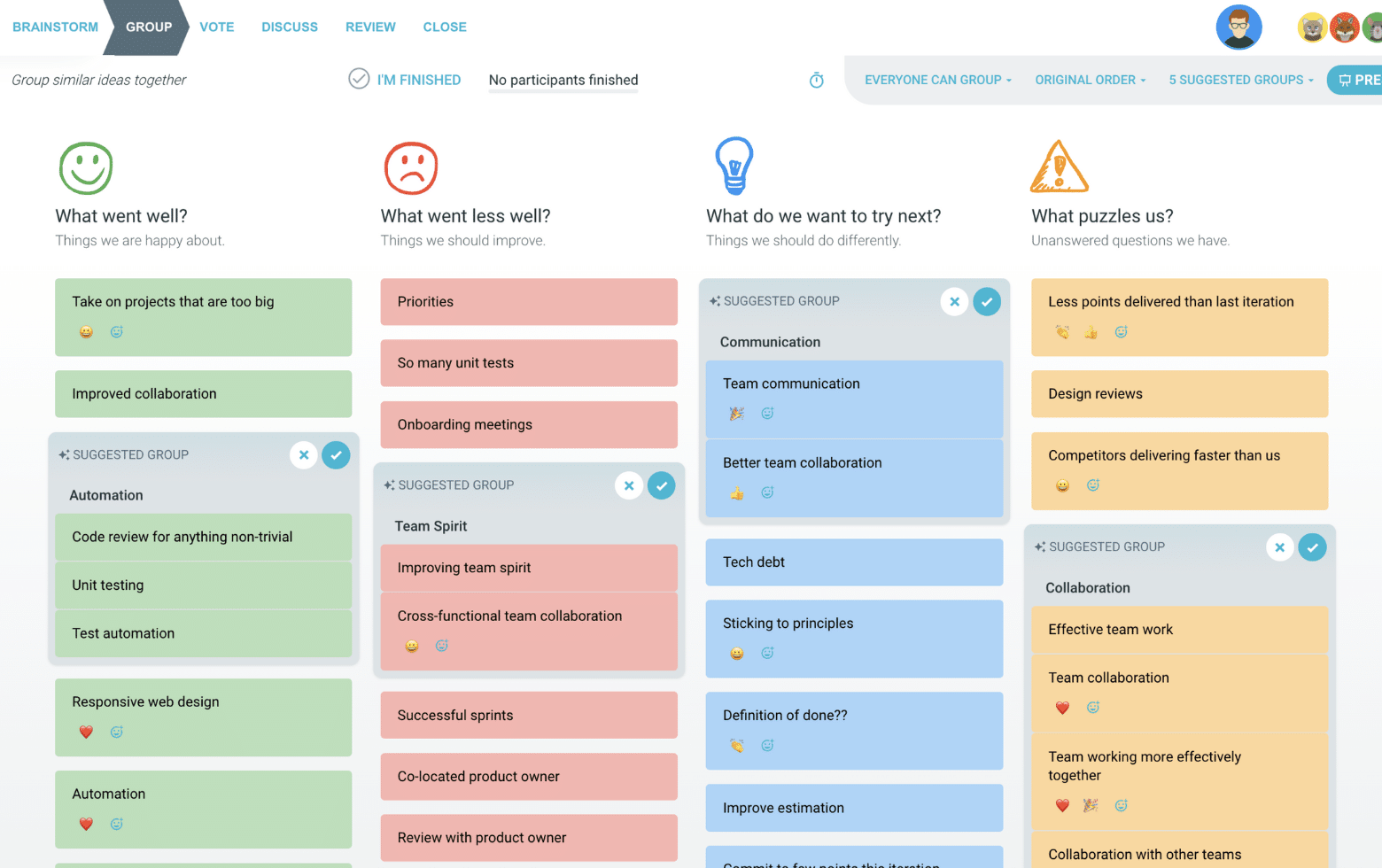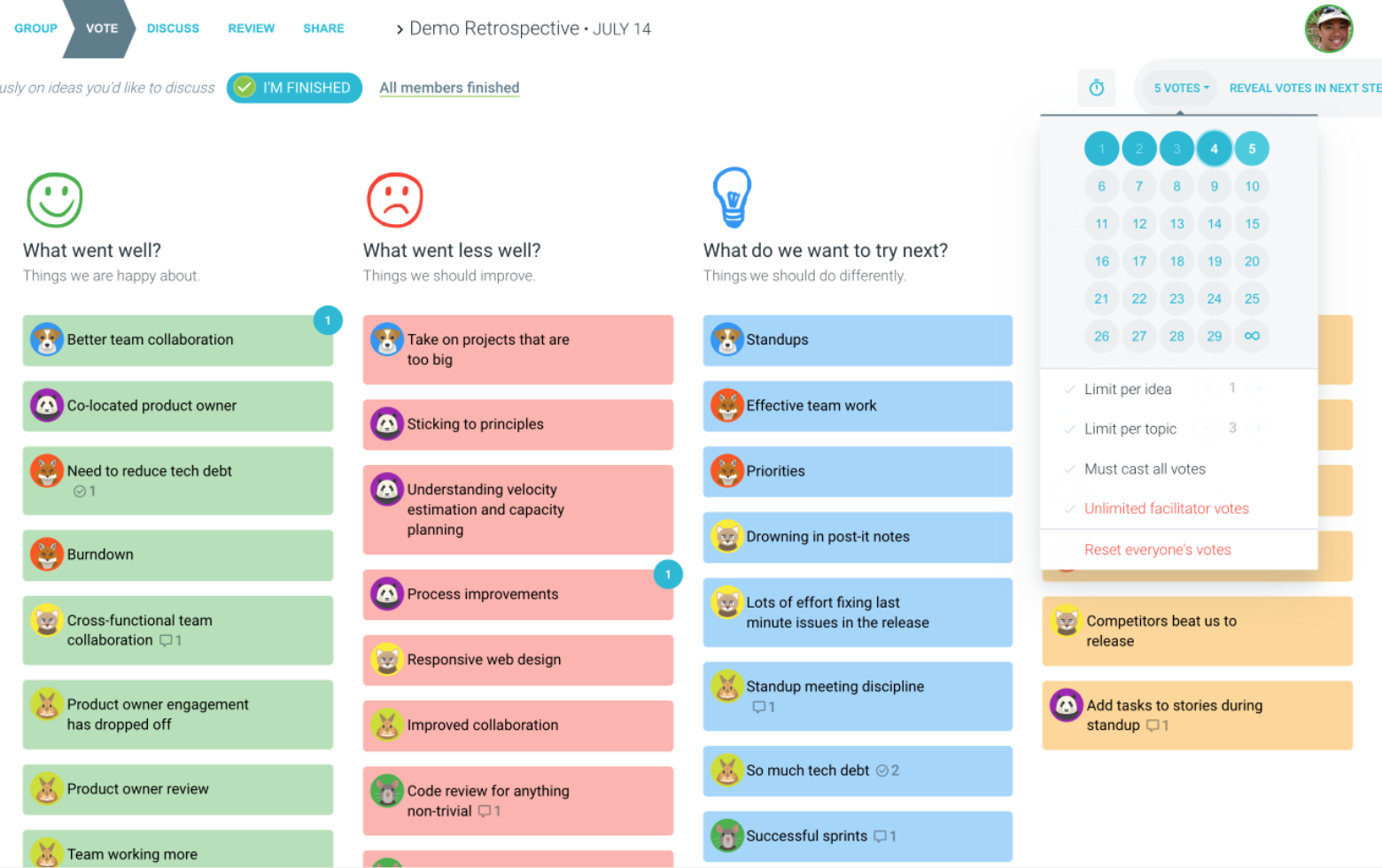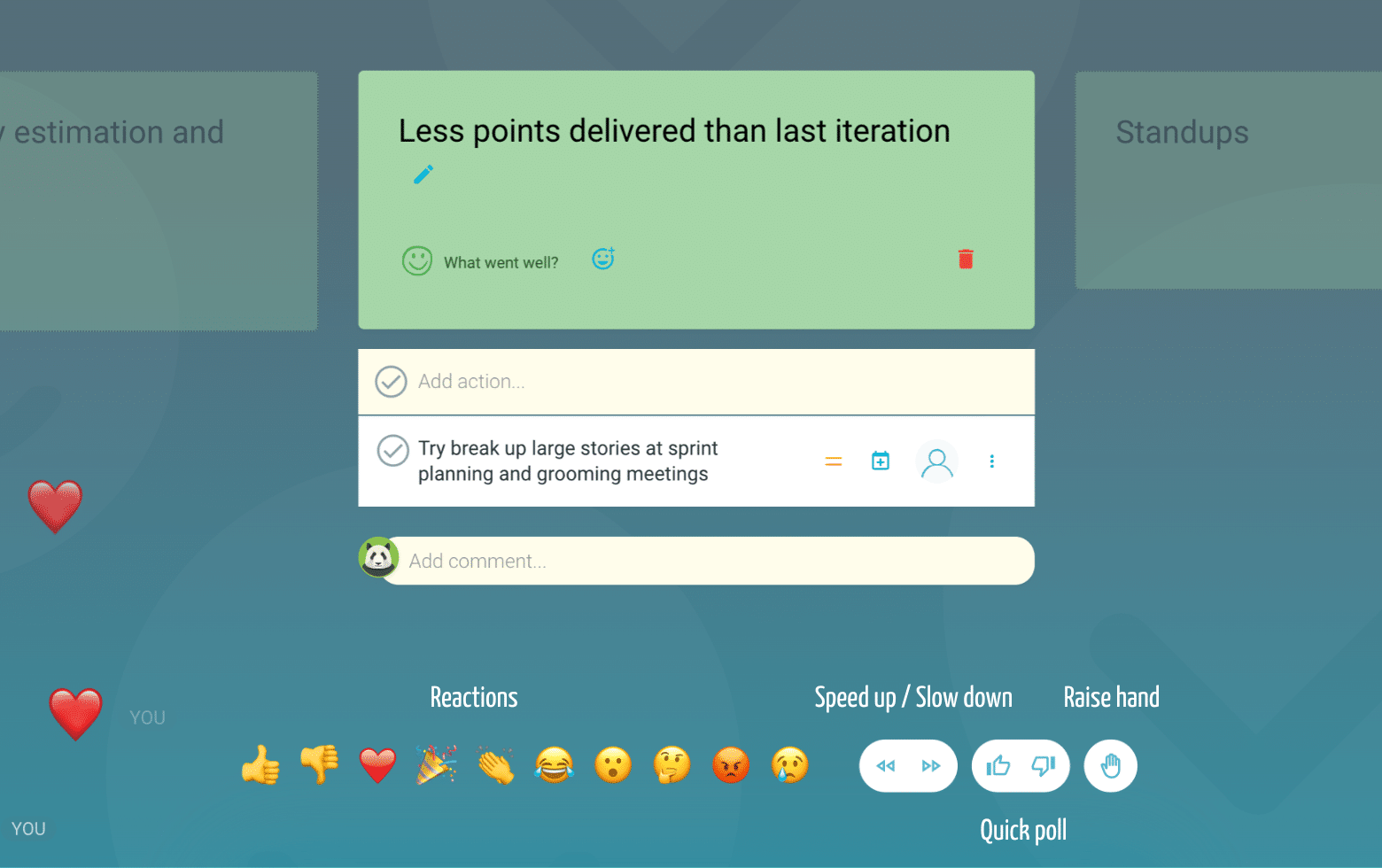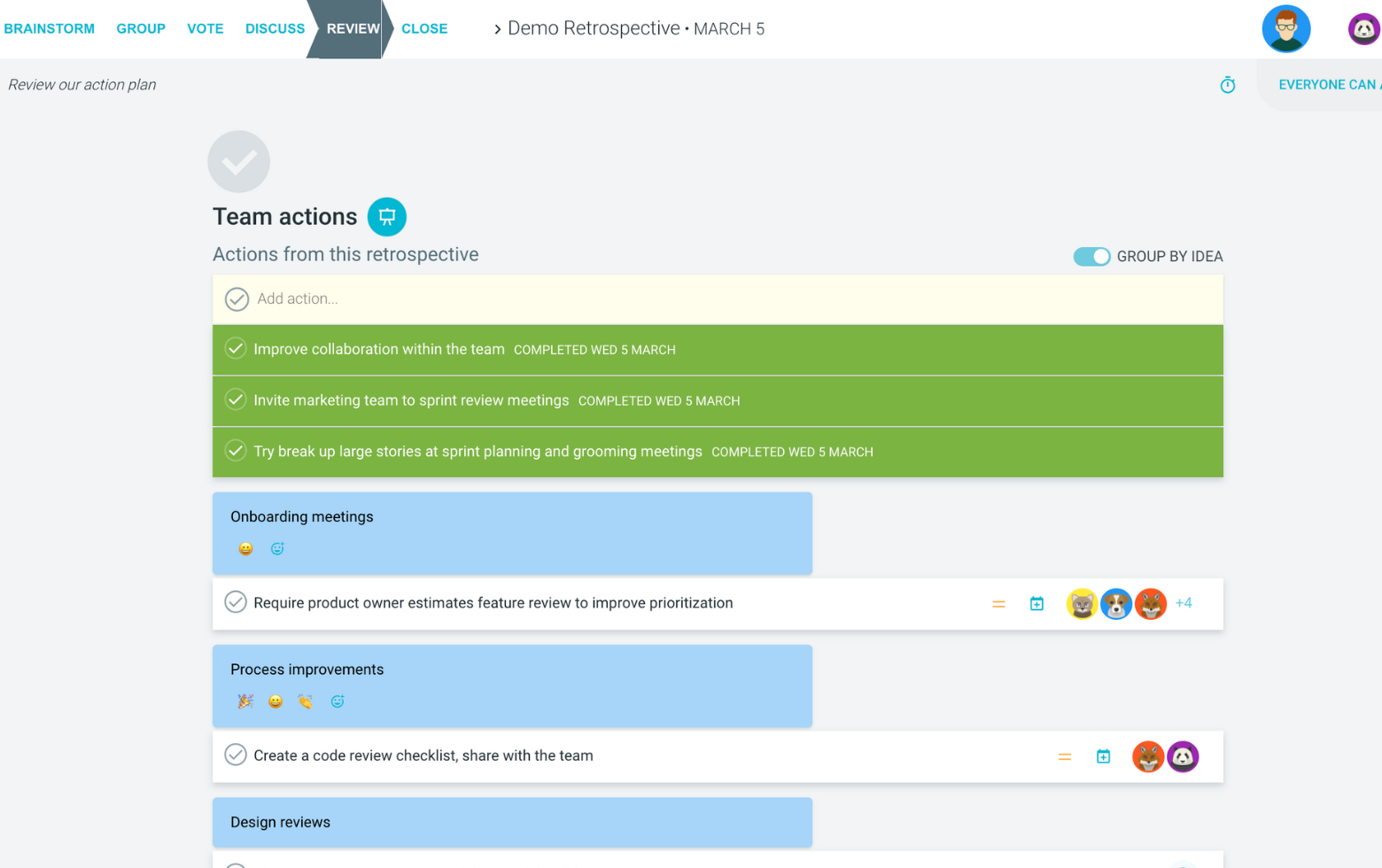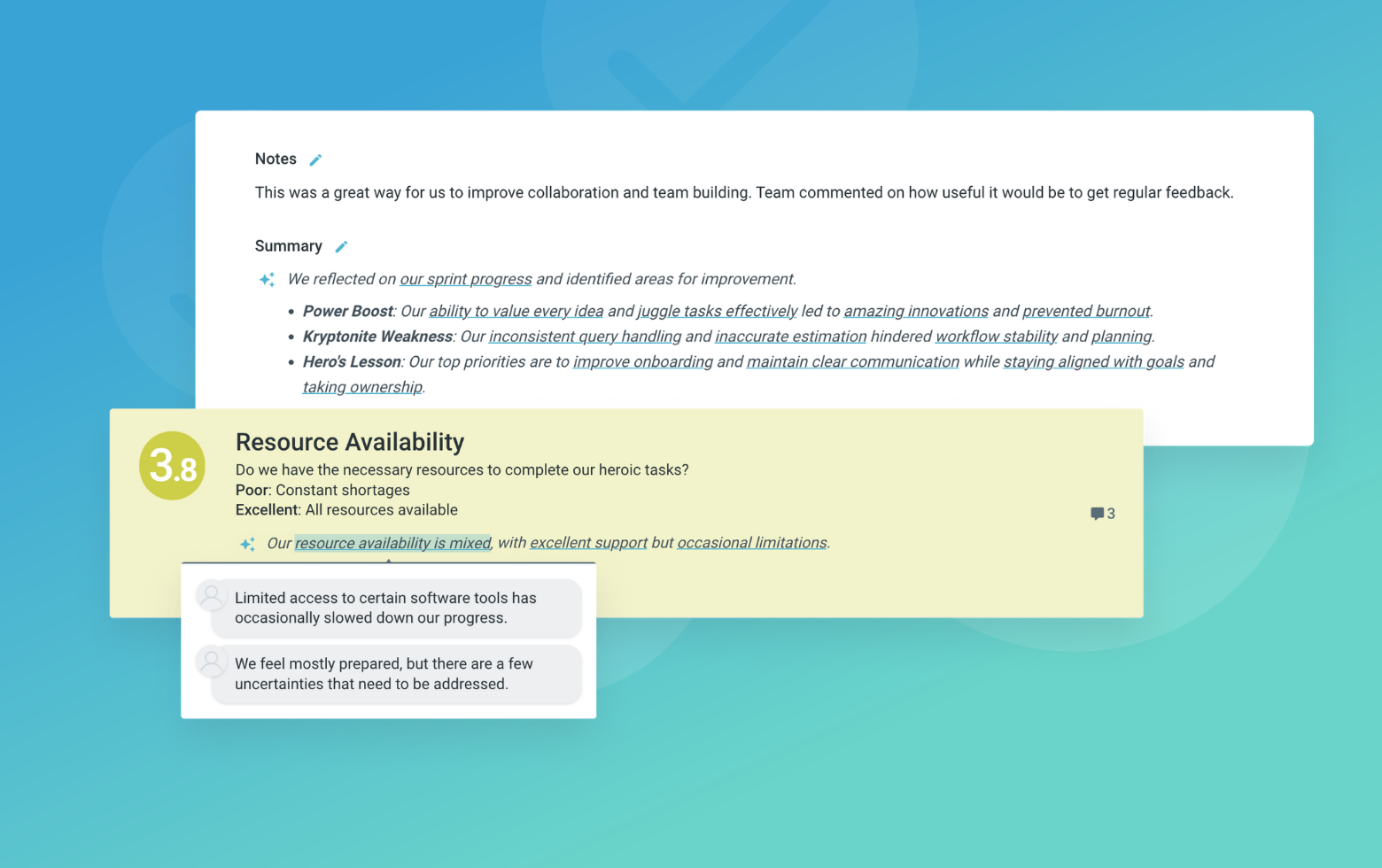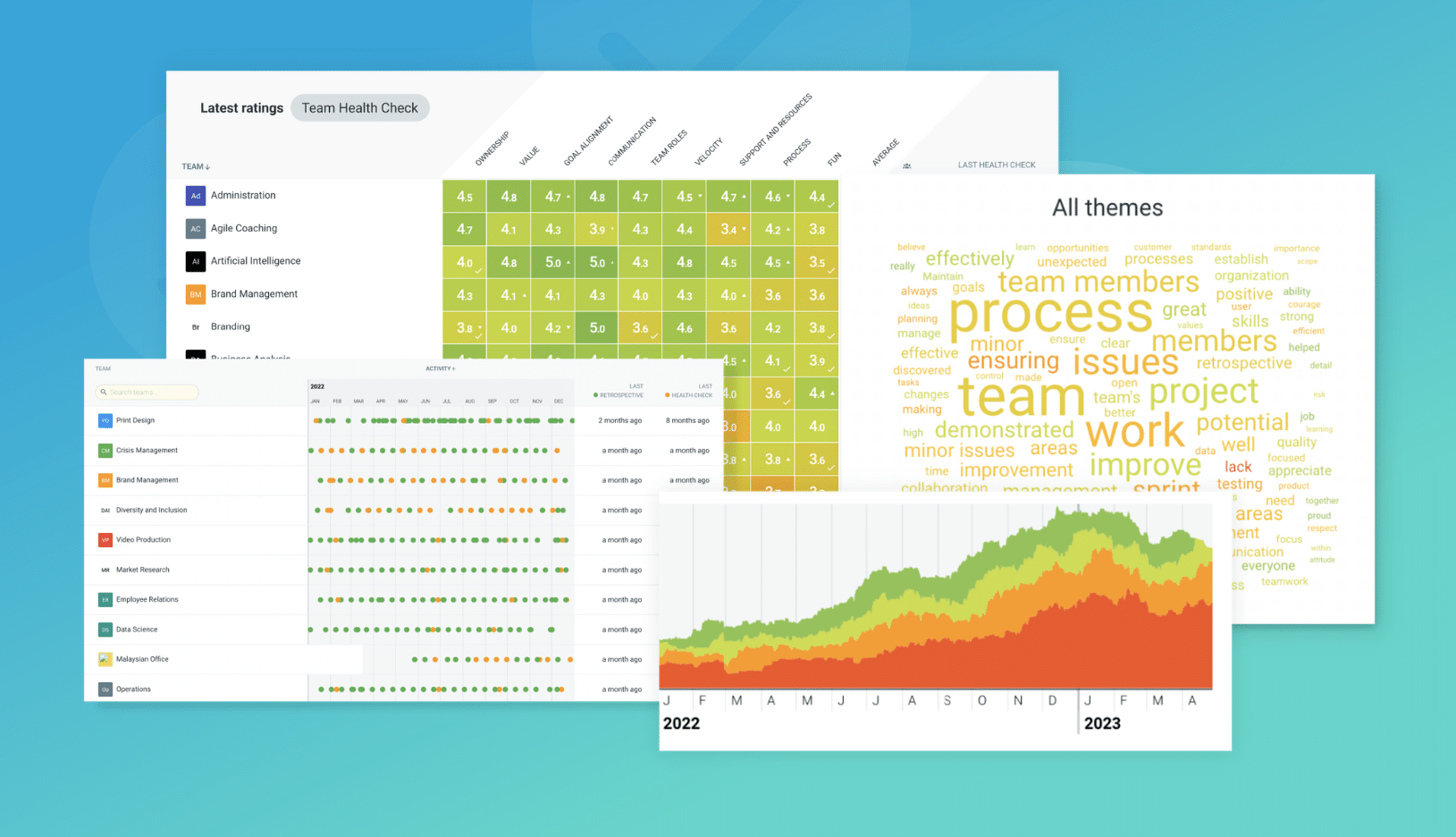An Organizational Communication Review is a retrospective activity that helps teams evaluate the effectiveness of their communication practices and identify areas for improvement. It encourages open discussion about communication challenges, successes, and opportunities within the team and across the organization.
This review promotes self-reflection and constructive feedback on communication channels, information flow, collaboration tools, and interpersonal dynamics. By addressing communication gaps and misalignments, teams can enhance transparency, alignment, and overall productivity.
The activity originated from the principles of organizational communication theory, which emphasizes the importance of clear and effective communication for organizational success. It has been adapted for agile teams to foster continuous improvement in their communication practices.
What is The Organizational Communication Review
Communication Channels
How effective are our current communication channels?
Communication channels refer to the various methods and tools used for sharing information within the team and across the organization. This topic explores the strengths and weaknesses of the channels being used, such as email, instant messaging, video conferencing, project management tools, and more.
Facilitators should encourage participants to reflect on the suitability, accessibility, and user-friendliness of each channel. Discuss whether the channels are being used appropriately and if there are any gaps or redundancies in the current setup.
Information Flow
How well does information flow within and across teams?
Information flow refers to the way information is shared, disseminated, and accessed within the team and across the organization. This topic explores the efficiency and transparency of information sharing, as well as any bottlenecks or barriers that may exist.
Facilitators should encourage participants to reflect on the timeliness, accuracy, and completeness of information sharing. Discuss whether there are any communication gaps or silos that hinder collaboration and decision-making. Additionally, explore whether there are any cultural or structural factors that impact information flow.
Collaboration and Feedback
How well do we collaborate and provide constructive feedback?
Collaboration and feedback are essential components of effective communication within teams. This topic explores the dynamics of teamwork, knowledge sharing, and the ability to give and receive feedback in a productive manner.
Facilitators should encourage participants to reflect on the level of trust, psychological safety, and openness within the team. Discuss whether there are any barriers or hesitations in seeking help, sharing ideas, or providing constructive criticism. Additionally, explore the team's ability to leverage diverse perspectives and embrace different communication styles.
Interpersonal Dynamics
How well do we navigate interpersonal dynamics and conflicts?
Interpersonal dynamics and conflict resolution are crucial aspects of effective communication within teams. This topic explores the team's ability to navigate personal differences, resolve conflicts, and maintain healthy working relationships.
Facilitators should encourage participants to reflect on the level of trust, respect, and emotional intelligence within the team. Discuss whether there are any unresolved conflicts or tensions that may be impacting communication and collaboration. Additionally, explore the team's ability to have difficult conversations and find mutually agreeable solutions.
Suggested icebreaker questions
- If our team was a communication channel, which one would it be and why?
- Share a funny or memorable miscommunication story from your experience.
Ideas and tips for your retrospective meeting
- Encourage open and honest feedback by creating a safe and non-judgmental environment.
- Involve representatives from different teams or departments to gain diverse perspectives on communication challenges.
- Consider using anonymous feedback mechanisms to allow for more candid responses.
- Prioritize action items and assign owners to ensure follow-through on identified improvements.
- Revisit and refine communication practices regularly, as needs and team dynamics evolve over time.
- Celebrate communication successes and share best practices across the organization.
.
How to run effective meetings with TeamRetro
Start Your Session in a Click
Log into TeamRetro and choose your template. Customise questions and the workflow to create your perfect retro for your team.
Create Your Team Easily – No Separate Accounts Needed
Brainstorm Individually – Free From Bias
Smart Grouping for Faster Insights
Fair, Flexible, and Fast Voting
Engage, React, and Capture Key Insights
Walk your team through ideas one by one with Presentation Mode. Stay in sync, spark real-time discussions, and capture feedback with comments, live reactions, and polls—all in one place.
Turn Ideas Into Action
Propose next steps with team buy-in, get AI-powered action suggestions, and keep everything in one place. Committed actions sync to your personal dashboard and integrate with your workflow tools—keeping you on track.
Save, Share, and Stay on Track
Get quick AI-powered summaries, add facilitator notes, and store retrospectives in your library for easy access. Schedule your next session and track published actions to keep your team accountable at the next retro.
Turn Team Data into Actionable Insights
Uncover trends, common themes, and key engagement metrics at a glance. Track sentiment shifts, analyze conversations, and monitor completed actions to drive continuous improvement.
